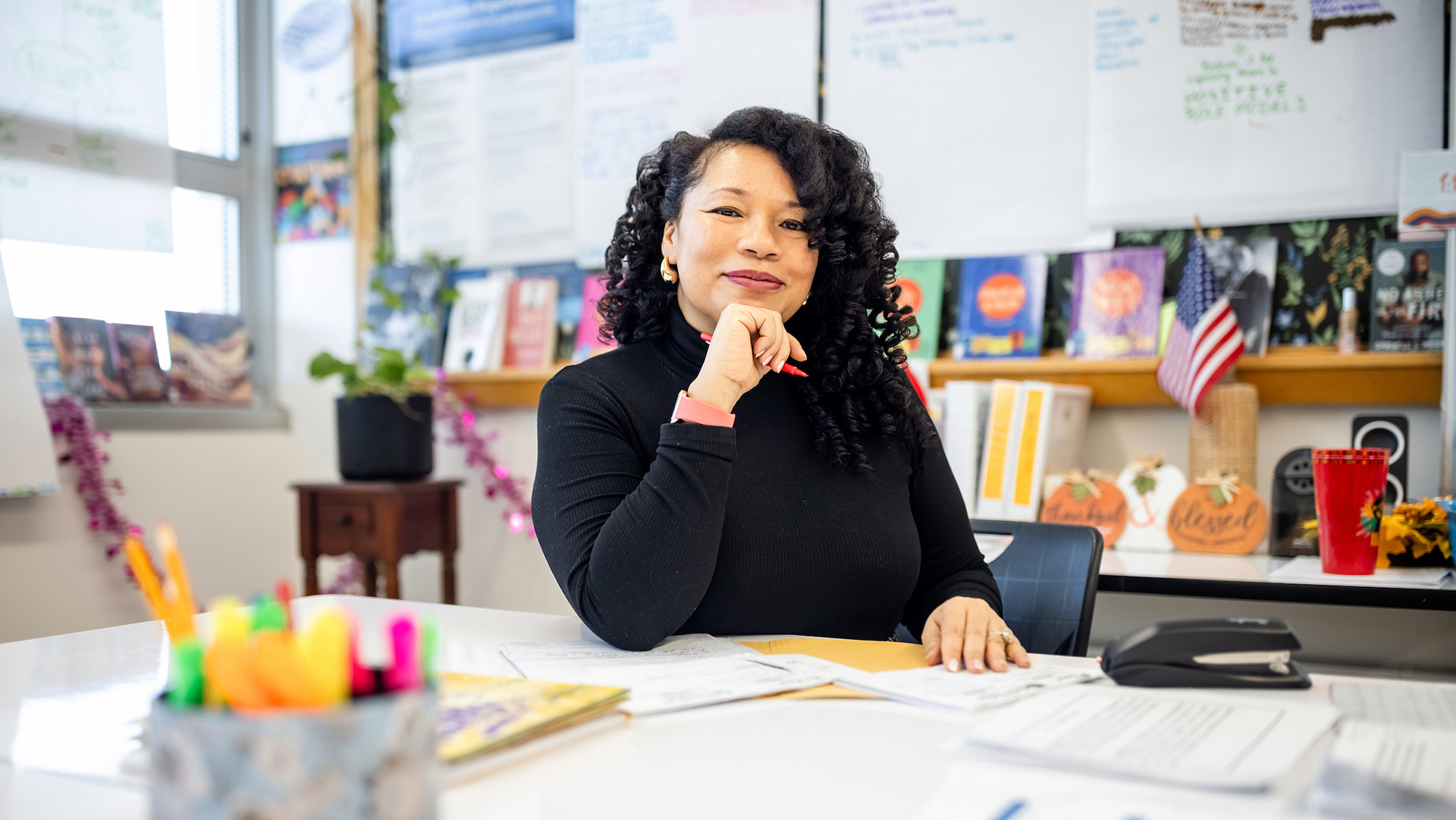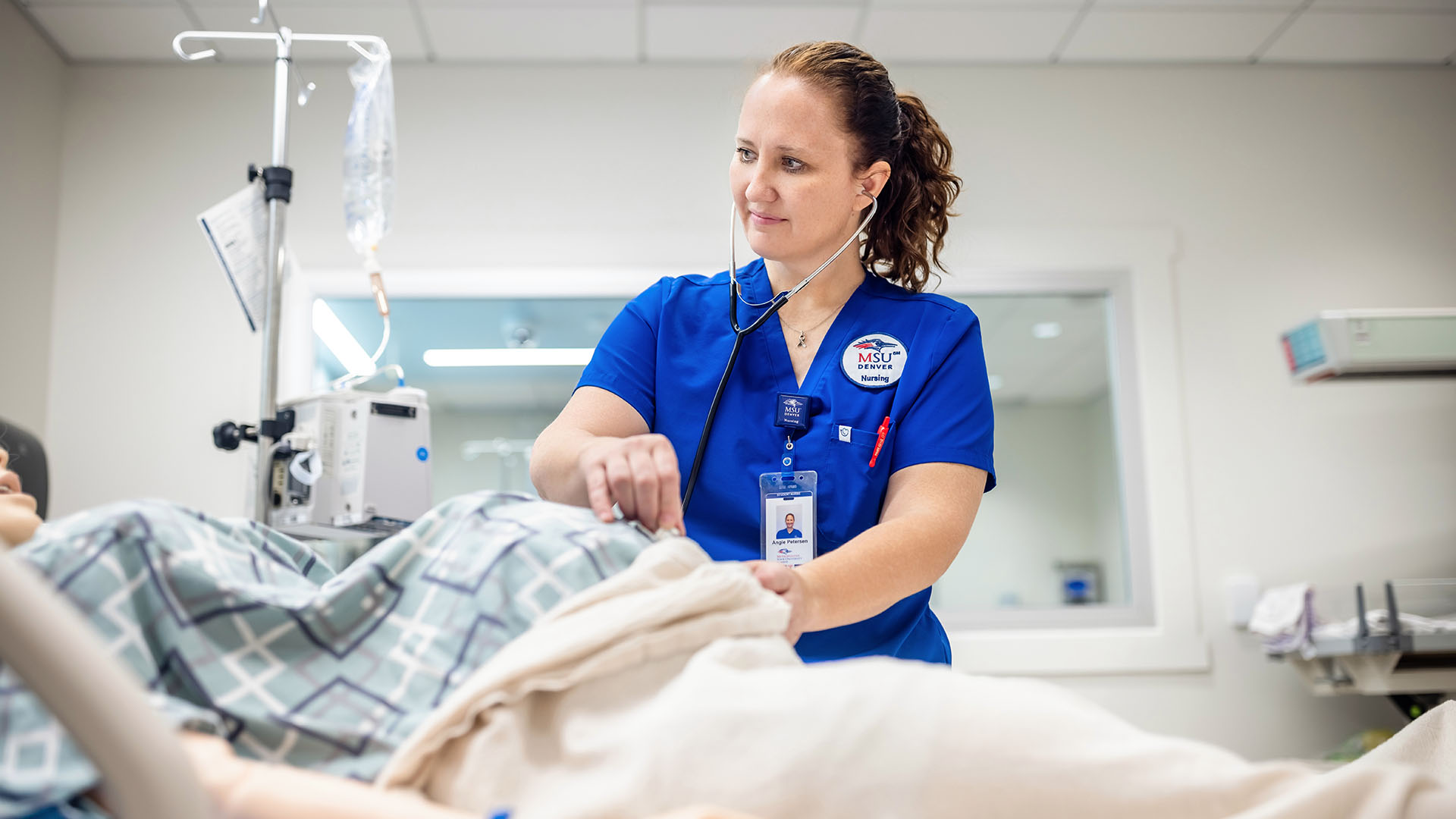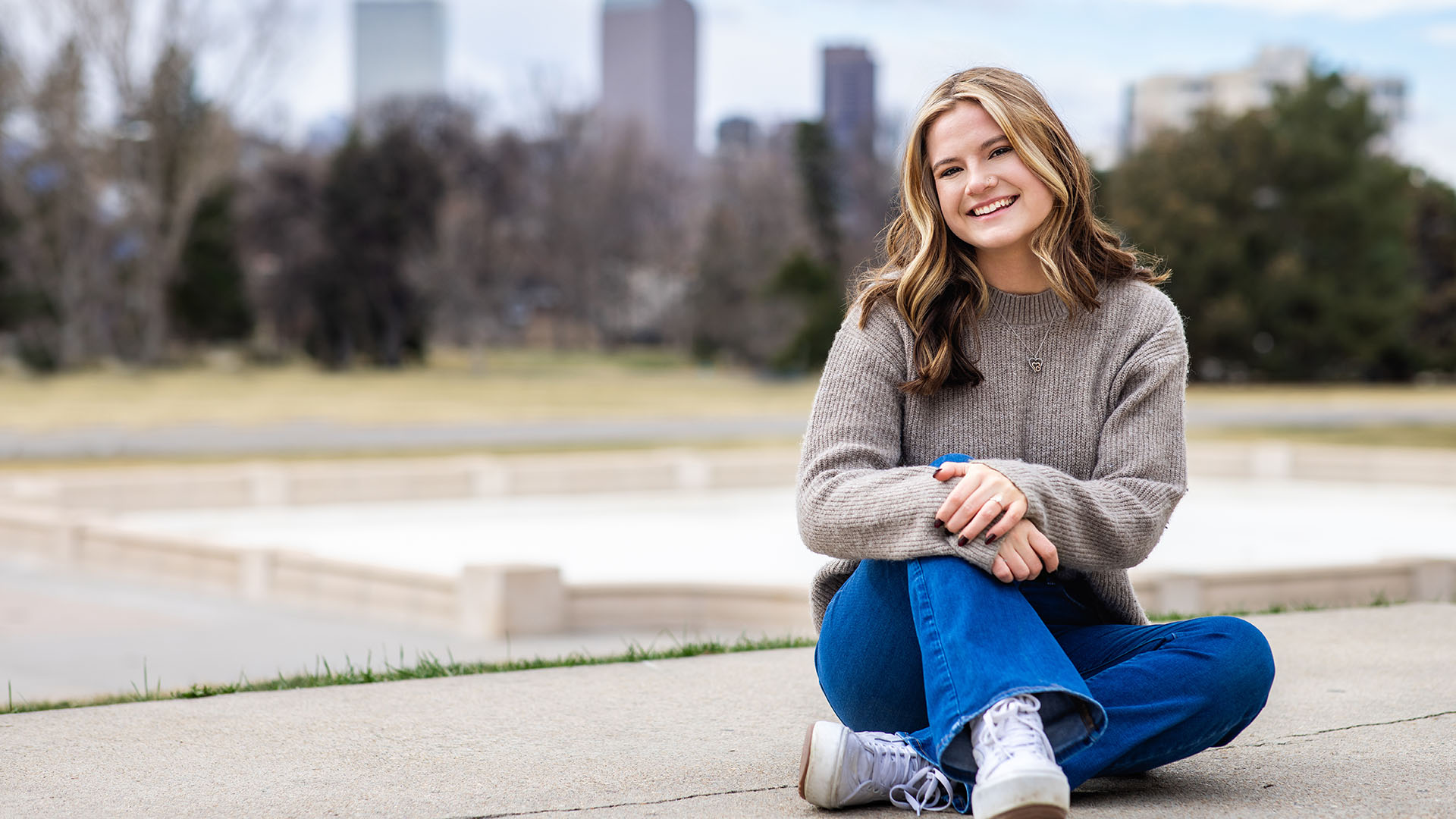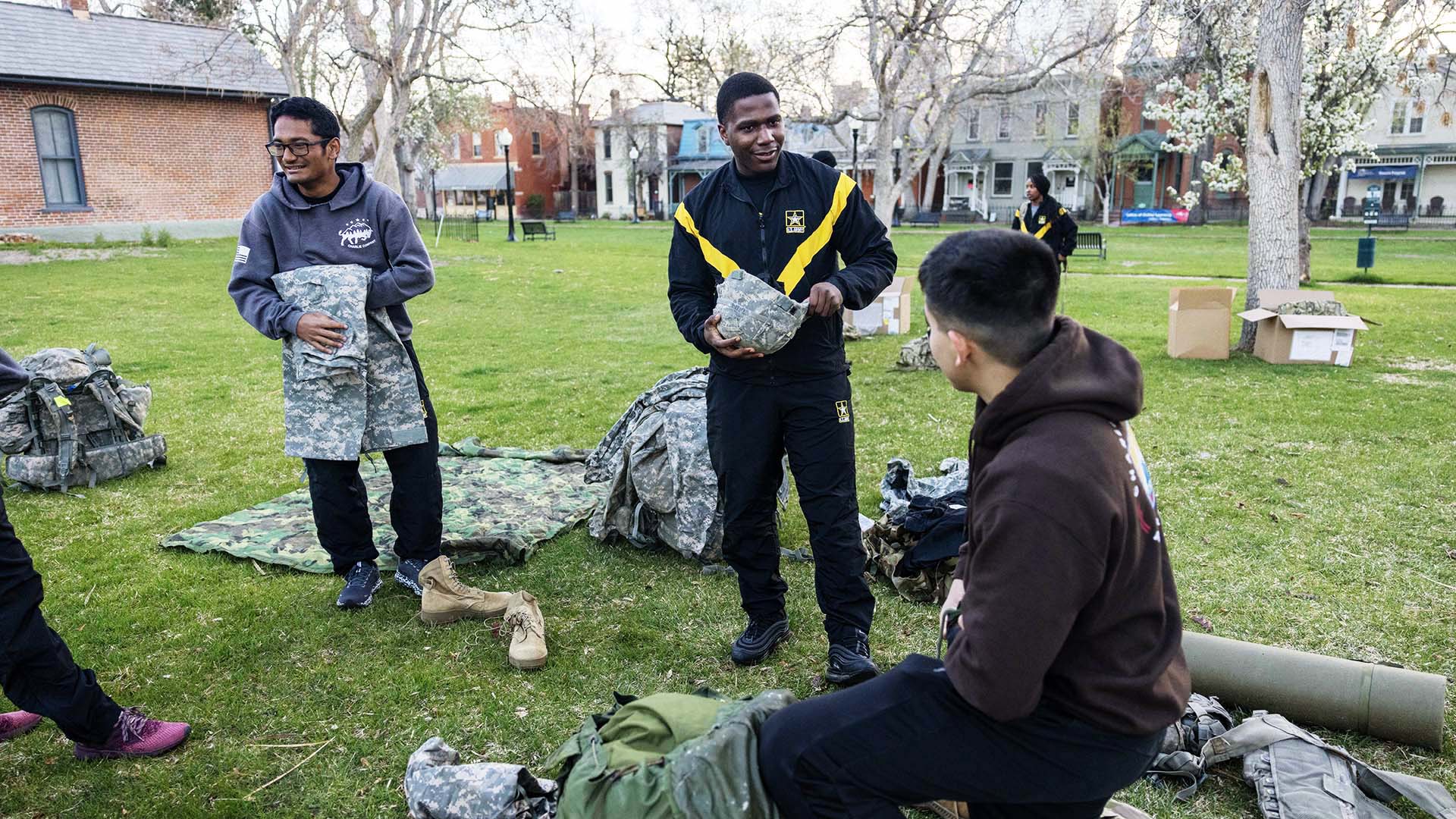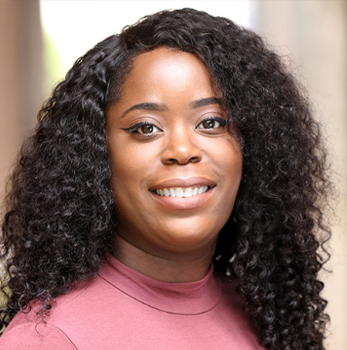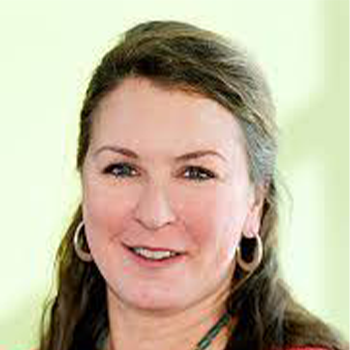Pipeline program guides low-income students to a college degree
MSU Denver’s Pathways to Possible initiative provides financial, academic and career support throughout the undergraduate journey.

First-generation college students from low-income backgrounds face unique hurdles in navigating the academic expectations and red tape that are part and parcel of getting a college education.
As a high school student four years ago, Luis Hernández didn’t know where to begin.
He’s the son of Mexican immigrants who support his educational journey, but his parents are unable to provide much guidance in navigating college.
“I wasn’t sure where I would be or whether I would even continue my education,” he said.
Thanks to a unique high school-through-college pipeline program, Hernández continued his education journey at Metropolitan State University of Denver, where next fall he will enter his final college semester and earn a bachelor’s degree.
MSU Denver’s Pathways to Possible program, known on campus as P2P, is designed to engage with students such as Hernández before they start their first year of college and then provide them with support and guidance throughout their undergraduate journey.
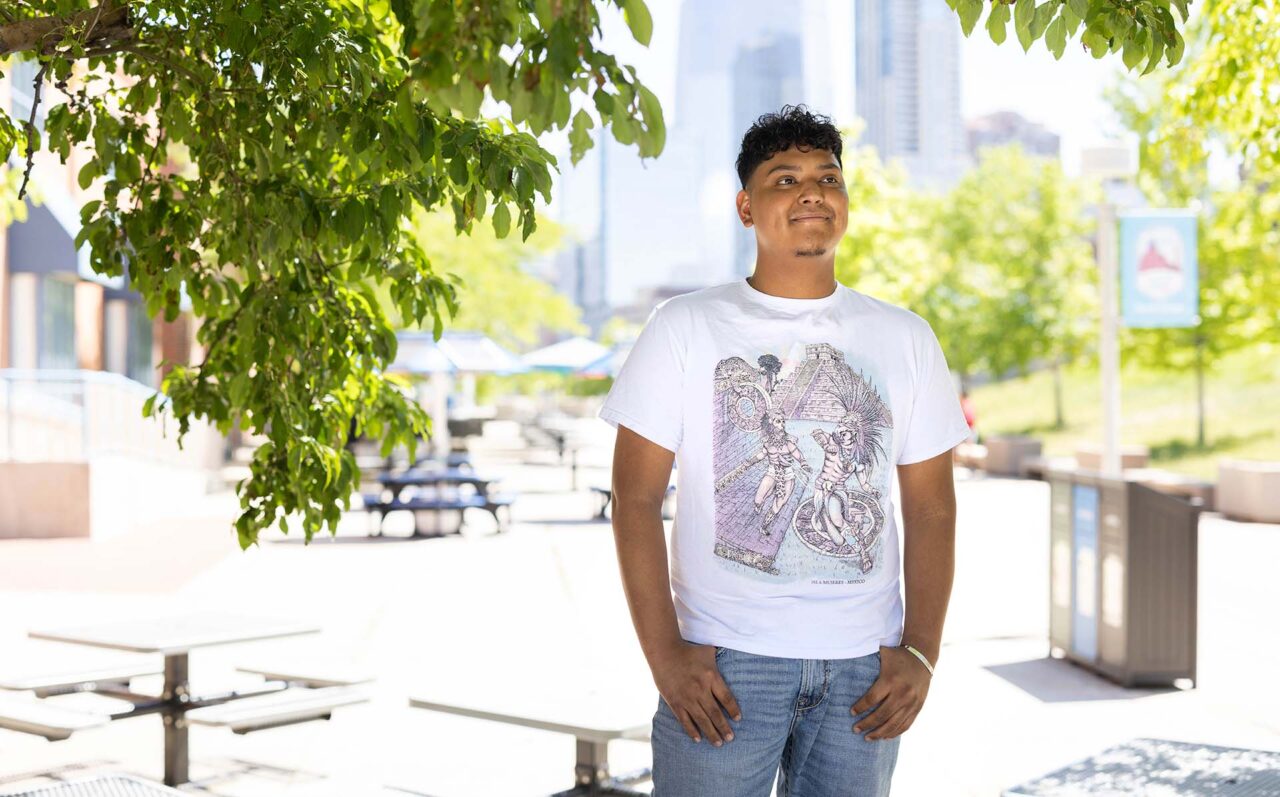
Under the program, launched in fall 2021 and initially supported by Gov. Jared Polis’ Response, Innovation and Student Equity fund, Pathways admissions counselors work with high school officials to identify students of color and those from low-income and rural areas who could benefit from the program.
Once those students are enrolled, the program provides financial assistance and scholarships, leadership development, academic coaching, summer internships and more.
RELATED: What it means to be a first-generation college student
Program administrators saw an immediate positive impact on students who entered the program. Now, four years later, they have data to back that up, said program director Melissa Cleaver.
“Right now, our retention is 80% — about 17 (percentage points) higher than the comparison group,” she said. “Ninety-five percent of them are low-income students. And we have a high percentage of students who are students of color or identify as underrepresented.”
The program is open to all first-time MSU Denver applicants who are graduates of Colorado high schools. Last fall, P2P worked with nearly 400 students, including more than 200 first-year students.
Incoming students who have been admitted to the program participate in a two-day workshop over the summer before classes start to establish a sense of belonging and community-building, Cleaver said.
Each student is assigned a success coach with whom they meet twice per semester, and they are also expected to become involved in a campus event and attend a career event related to their major. The key, Cleaver said, is maintaining regular contact and developing a relationship with students before they set foot on the MSU Denver campus until college graduation.
“That’s the basis,” Cleaver said. “We try to keep them involved in campus each semester and check on them so that they can ultimately reach their personal and professional goals.”
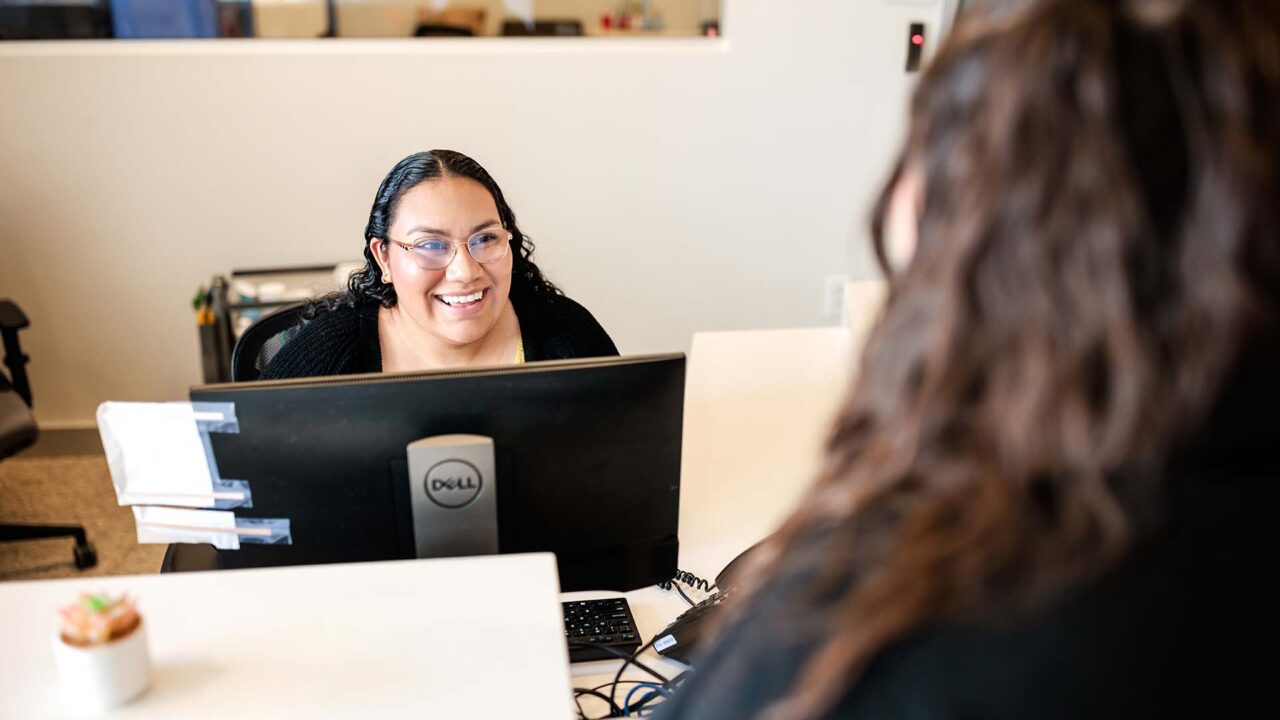
Alexandra Contreras-Ocón, a third-year student who was in the program’s first cohort, graduated in 2021 from Denver’s South High School and is the first in her family to go to college.
“It was challenging because I didn’t know that applying for college is supposed to involve filling out FAFSA (the Free Application for Federal Student Aid),” she said. “And then, there was how much college costs and choosing classes. It was challenging.”
The P2P program helped answer those questions and get her oriented on campus. “It was beneficial because at that time I didn’t know what kind of programs MSU Denver really offered,” Contreras-Ocón said. “The staff there were helpful with giving me the sense of what P2P was. They have been really helpful with any questions I have or what I’m doing with my classes.”
RELATED: Independent students are on the rise at MSU Denver. This program provides support
Her twice-per-semester check-ins with her success coach have helped as well, she said.
Per P2P program requirements, Contreras-Ocón has participated in campus events and attended workshops on crafting résumés. She also works part-time as an assistant in the Department of Orientation, Transfer and Reengagement. Meanwhile, she has identified a career goal.
“I’m majoring in Social Work,” she said. “My plan is to get my bachelor’s and then, once I finish with that, start my master’s here at MSU Denver, also for Social Work. After I complete that, I plan to be a Licensed Clinical Social Worker. I want to be a therapist with children.”
Hernández has also identified career goals and is on track to graduate next December with a Sociology major and a minor in Chicana/o Studies. “The thing that interested me most was looking at how society works,” he said of his major. It also makes use of statistics, a subject he enjoys.
Now, Hernández has set his sights on making health care more accessible to minorities and is thinking of pursuing a master’s degree in Health Care Administration. “I have a dream of starting a nonprofit to help draw minorities into health care,” he said.

